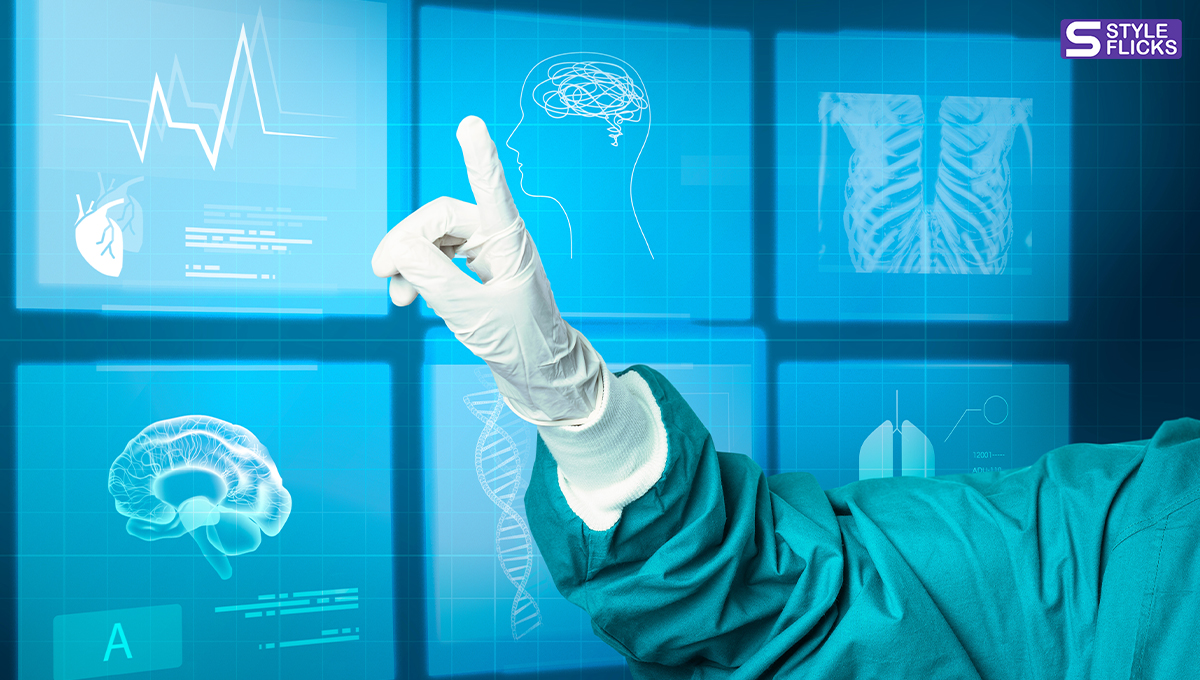A lot of silent revolution is also undergoing a silent revolution, which is also powered by artificial intelligence. The hospital is no longer the main center of care; nowadays, we see our wrist, phone, and cloud-based dashboards becoming the modern frontlines of wellness.
Welcome to the future of AI healthcare, the place where tech and compassion meet to make smarter, quicker, and more personalized medical experiences. With all the virtual wellbeing assistants that remind us to take the meds and the complete AI frameworks that help in identifying rare diseases through precision diagnostics, healthcare is no longer about reacting—it's about predicting and preventing.
This shift isn’t just happening in research labs. It’s shaping the way doctors diagnose, patients recover, and lives are saved—all in real time.
The Future of AI in Healthcare Is Already Here
AI is taking on more than just tasks—it’s taking on trust. Hospitals are using the healthcare data analytics to spot their patient trends, forecast treatment success, and look at how to prevent complications before they arise. These are helping in making the care plans, which are as unique as fingerprints.
Meanwhile, healthcare workflow automation is cutting down hours of repetitive admin. From prescriptions to paperwork, AI ensures doctors spend more time with patients—and less time on screens.
The future of AI in healthcare is around scaling empathy with efficiency.
AI Technologies Reshaping Modern Healthcare
|
Innovation |
Purpose |
Impact on Healthcare |
|
Virtual Health Assistants |
24/7 patient guidance & symptom triage |
Reduces clinic overload & improves access |
|
Smart Healthcare Devices |
Real-time remote vitals monitoring |
Enables home care & faster intervention |
|
Smart Blood Pressure Monitor |
Continuous BP monitoring with insights |
Better control of hypertension risks |
|
AI-Powered Wearables |
Tracks heart rate, sleep, activity |
Supports lifestyle improvements |
|
Precision Diagnostics |
AI-enhanced image and data interpretation |
Early, accurate detection of diseases |
|
AI-Driven Drug Discovery |
Identifies compounds & predicts outcomes |
Speeds up drug development pipelines |
|
Healthcare Workflow Automation |
Manages scheduling, billing, records |
Frees up time for personalized care |
Smart Blood Pressure Monitors That Know You
Forget once-a-year readings at the clinic. A smart blood pressure monitor can track your vitals 24/7, analyze trends, and ping your doctor the minute something looks off. With AI in the blend, it’s not fair about numbers—it’s about understanding designs and preventing escalation before it starts.
These devices sync to your phone, offer daily insights, and allow for more data-driven consultations. It’s proactive care, not panic-mode intervention.
Wearables That Work Overtime for Your Health
AI-powered wearables have quietly become healthcare MVPs. Beyond checking steps, they detect sporadic heartbeats, screen rest cycles, and hail signs of push. Connected with your health profile, they give doctors with continuous data that distant exceeds the occasional check-up.
Think of them as your personal health guardians—tracking and alerting you, even while you’re asleep.
The Power of AI-Driven Diagnostics & Discovery
Behind the scenes, precision diagnostics are revolutionizing how diseases are detected. AI algorithms analyze complex scans and datasets to uncover illnesses doctors might miss. This isn't about replacing experts—it’s about backing them up with billions of data points.
And when it comes to treatments? AI-driven drug discovery is fast-tracking the process by predicting which compounds will work before human trials indeed start. It’s proficient, cost-saving, and potentially life-saving.
Beyond the Hospital: Healthcare Gets Smarter Everywhere
We’re entering a world where your living room can double as a mini-clinic. With smart healthcare devices and virtual wellbeing assistants, managing chronic conditions or post-op recovery doesn't require travel—it reasonably needs Wi-Fi.
And on the backend, healthcare workflow robotization makes beyond any doubt everything run easily. Whether it's arrangement updates or real-time protection claims, the tech does the overwhelming lifting so care remains the priority.
The future of AI in healthcare is convenient, connected, and incredibly patient-centric.
Conclusion: Healing, Upgraded
As technology advances, so does the heart of healthcare. AI isn’t replacing your doctor—it’s empowering them. It’s equipping hospitals to be faster, patients to be better informed, and treatments to be more accurate than ever before.
From smart blood pressure monitors to AI-powered wearables, the future of AI in healthcare is not a far-off dream—it’s as of now here, stitching together a system that’s proactive, personalized, and significantly human.
Health isn’t fair about survival anymore—it’s about optimization. And AI is making it smarter, safer, and surprisingly simpler.
FAQs
Q1: How is AI being used in healthcare today?
AI is already supporting diagnostics, managing health records, powering wearables, and helping with drug discovery over global healthcare systems.
Q2: Are virtual health assistants accurate and trustworthy?
They’re built with medical databases and AI logic to assist in early assessments and reminders. While helpful, they don’t replace clinical expertise.
Q3: Can AI devices help in managing chronic diseases?
Yes, cool gadgets like wearables and BP monitors help track daily data and alert you or your doctor to any health inconsistencies in real time.
Q4: Is healthcare data secure when overseen by AI systems?
Reputable AI platforms follow strict data encryption and privacy standards. Still, it’s important to use tools from trusted, compliant sources.

Comments (3)
John Doe - July 19, 2025
Great article! I particularly enjoyed the section on AI in healthcare. It's truly amazing how technology is transforming medicine.
Alice Smith - July 19, 2025
Very insightful. I'm curious about the ethical challenges of AI. Perhaps a future article could delve deeper into that?
Leave a Comment